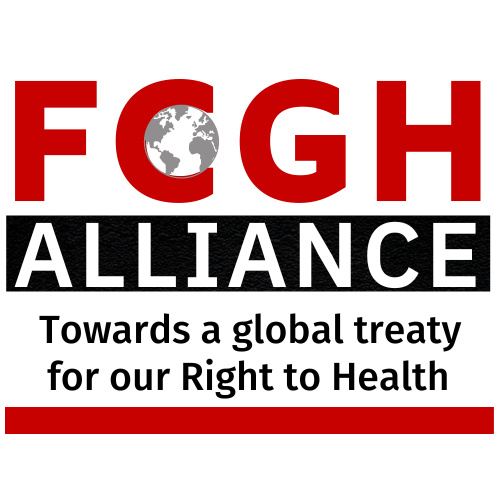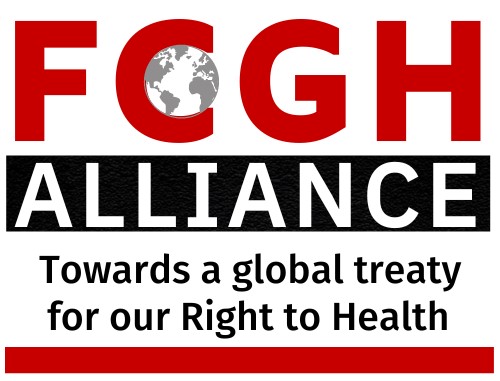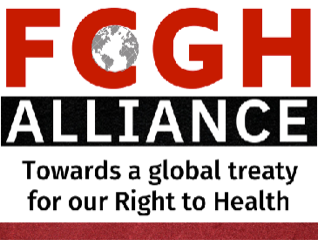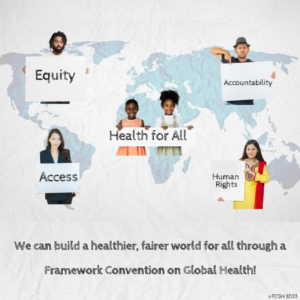
Lyla Latif & Akram Latif
Why should we care about financing the right to health, especially in the Global South? The problem is stark: limited resources and competing priorities often push health financing to the back burner in low-to-middle-income countries. The World Health Organization reports that approximately half of the world’s population cannot access essential health services, and 100 million people are pushed into extreme poverty due to health expenses. The Global South faces the brunt of this crisis, where even basic health services can be out of reach for the marginalised. As we navigate a post-pandemic reality, the urgency for robust health systems financed in a way that upholds the right to health for all has never been more apparent.
The necessity for equitable access to healthcare services has positioned digital health financing as a significant evolution across the Global South. It holds considerable promise for transforming healthcare accessibility and payment mechanisms in developing countries. In Kenya, for instance, the digital health market is projected to expand annually by 9.50% between 2023 and 2028, potentially reaching a market size of US$756.00m by the end of the forecast period according to estimates. This exemplifies the rapid growth supported by foundational elements such as infrastructure development, service provision, and payment systems, which are integral to the advancement of digital health sectors across the Global South. Central to Kenya’s digital health landscape is the CarePay initiative, which administers the M-TIBA platform, connecting stakeholders in a streamlined manner.
Such platforms are emerging across developing nations as crucial for the economic sustainability of health services. Analytical projections suggest that by 2030, digital health interventions could reduce total healthcare expenditures by as much as 15 percent in some African countries. This underscores the potential for substantial cost efficiencies and improved resource management. Thus, the Global South is witnessing strategic engagement with digital health financing, characterized by platform development that facilitates efficient payment processes. This signals a significant trend in market growth, shaping frameworks where digital health solutions are recognized as essential to enhancing healthcare delivery. However, realizing the full potential of digital health financing remains a challenge.
The data landscape for digital health financing remains complex and uneven across the Global South. Complete, reliable data is critical for understanding investment flows, product development pipelines, and health impacts. Yet systemic issues persist, including lack of transparency from private sector actors, non-standardized metrics, and limited capacity for data collection and analysis within public health institutions. This limits effective monitoring and policymaking. A 2021 report from the WHO found that out of 133 country case studies, only 42% had a functional health information system capable of disaggregating key digital health statistics. Robust digital health financing data is essential to track funding gaps, identify inequities, and strengthen accountability. As digital health innovations multiply rapidly, developing country governments must prioritize capacity building for data collection and evidence-based oversight. Partnerships with academia and civil society can supplement internal data capabilities. But responsible digital health financing begins with comprehensive, unbiased data to inform regulation and advance public health goals. Significant investment in data systems is vital now to avoid blind spots as digital health financing grows across the Global South.
Without proper regulation and safeguards, there is a risk that digital health innovations may prioritize profitability over public health needs. For example, increased privatization and commercialization of digital health tools could potentially introduce discriminatory practices if left unchecked, as evidenced by case studies in East Africa (Neumark & Prince, 2021). Industry-controlled digital health data may inherently be biased towards more profitable demographics and services, rather than supporting equitable public health coverage across all populations. A study by Peck et al. (2015) found that digital health applications disproportionately targeted urban wealthy populations over rural poor. This illustrates one of many concerns related to unregulated data use.
Other key issues include lack of interoperability and data sharing between digital systems and platforms, which can create proprietary silos that prevent comprehensive analysis of how private sector digital health investments align with public health needs (Mehl & Labrique, 2014). This impedes evidence-based oversight. Additionally, as private companies increasingly collect and control population health data, concerns around ethics, privacy and cybersecurity become more urgent. Yet legal frameworks governing data governance and privacy remain underdeveloped across much of the Global South (Babalola, 2023). This regulatory gap needs to be addressed to ensure private digital health financing is accountable and health data rights are protected.
The human rights implications of these issues around digital health financing data are also profound. As outlined in UN Committee on Economic, Social and Cultural Rights General Comment No. 14, availability and accessibility of health data is intrinsically linked to the right to health. Without quality data, it is difficult to identify gaps in health system coverage, discrimination against marginalized groups, or lapses in accountability. A lack of transparency, biased data collection, and unethical use of personal data contravene rights principles like participation, non-discrimination and informed consent. Reliance on proprietary health data controlled by private companies also undermines rights to benefit equitably from scientific progress. Further, inadequate cybersecurity and privacy protections in digital health systems infringe on rights to confidentiality and data protection.
Thus, responsible use of data is critical for a human rights-based approach to digital health financing. As General Comment No. 14 emphasizes, the right to health extends to the underlying determinants of health, including access to health-related information and technology. States have an obligation to prevent unethical commercialization or misuse of digital health data through regulation and multi-stakeholder collaboration (Gerke et al., 2020; Chen, 2020; McGraw and Mandl, 2021). With sound data governance, digital innovation can uplift health equity and universality. The human rights lens provides an important moral foundation as we shape the future of digital health financing across the Global South.
The lack of comprehensive digital health data and proper regulation identified here directly relates to key focus areas and accountability mechanisms within the FCGH framework.
Firstly, the FCGH draft stipulates state obligations to make available disaggregated data to identify inequalities and discrimination in access to health services and underlying determinants of health (Article 2.7). This principle should expressly apply to digital health technologies and data systems as well. Targeted language could be added requiring collection and transparency of digital health financing data, including on investment flows, product pipelines, and usage metrics disaggregated by demographic factors.
Relatedly, the FCGH promotes participatory processes for priority-setting, budget allocations, and monitoring (Articles 2.2, 3.2). Multi-stakeholder engagement in digital governance can supplement overstretched regulatory capacities in LMICs. The FCGH articles on participation could specify inclusion of marginalized communities in decisions regarding digital health investments to prevent discriminatory gaps in access or affordability.
Additionally, the FCGH holds states accountable for regulating businesses to align their activities with the right to health (Article 5). As private sector actors dominate digital health innovations, the FCGH must establish appropriate oversight mechanisms regarding issues like data ethics, interoperability, privacy, and cybersecurity in digital services. The FCGH could also expressly integrate standards from human rights instruments on data protection and confidentiality.
Furthermore, the emphasis on shared responsibility and global solidarity in the FCGH (Article 1.1) provides impetus for regional collaboration and international cooperation on challenges like cross-border data flows and cybercrime that require harmonized responses. Channels for technical assistance and technology transfer could also be formalized through the FCGH framework.
To conclude, the FCGH offers a charter for collective action to uphold the right to health in the rapidly evolving digital realm, bridging regulatory gaps through cooperative standards-setting and capacity-building based on human rights principles of accountability, transparency, participation and equality. The issues highlighted in the blog reinforce that safeguarding these principles in digital health ecosystems must be part of the FCGH agenda for 21st century health governance advancing global health with justice.





